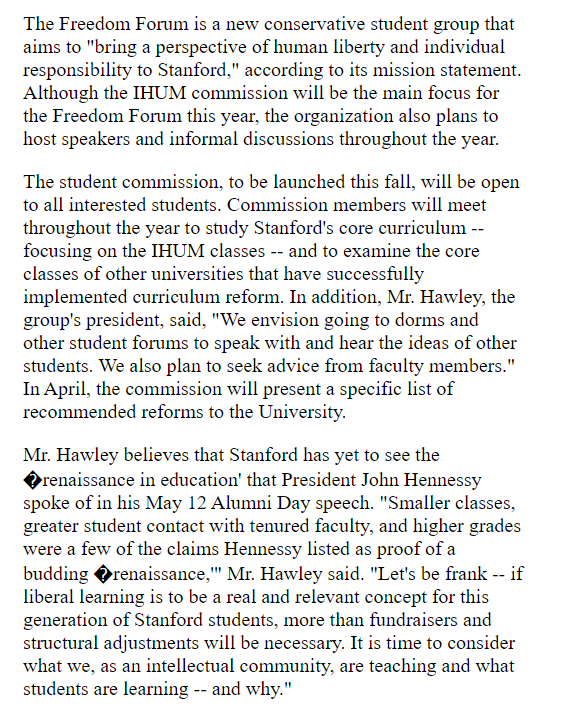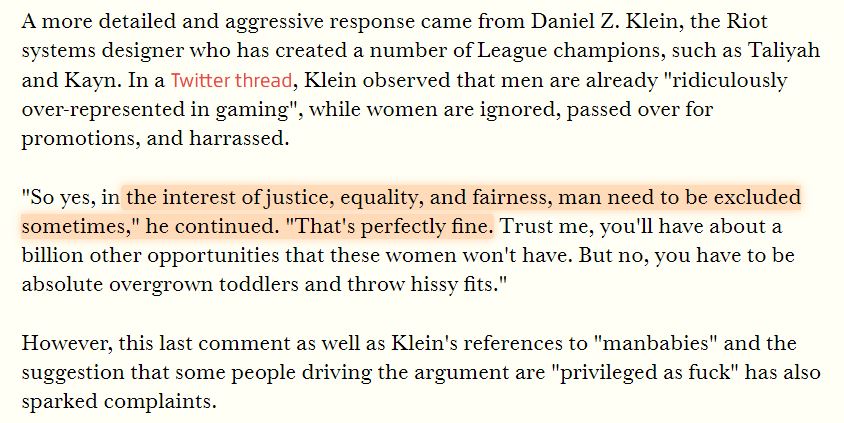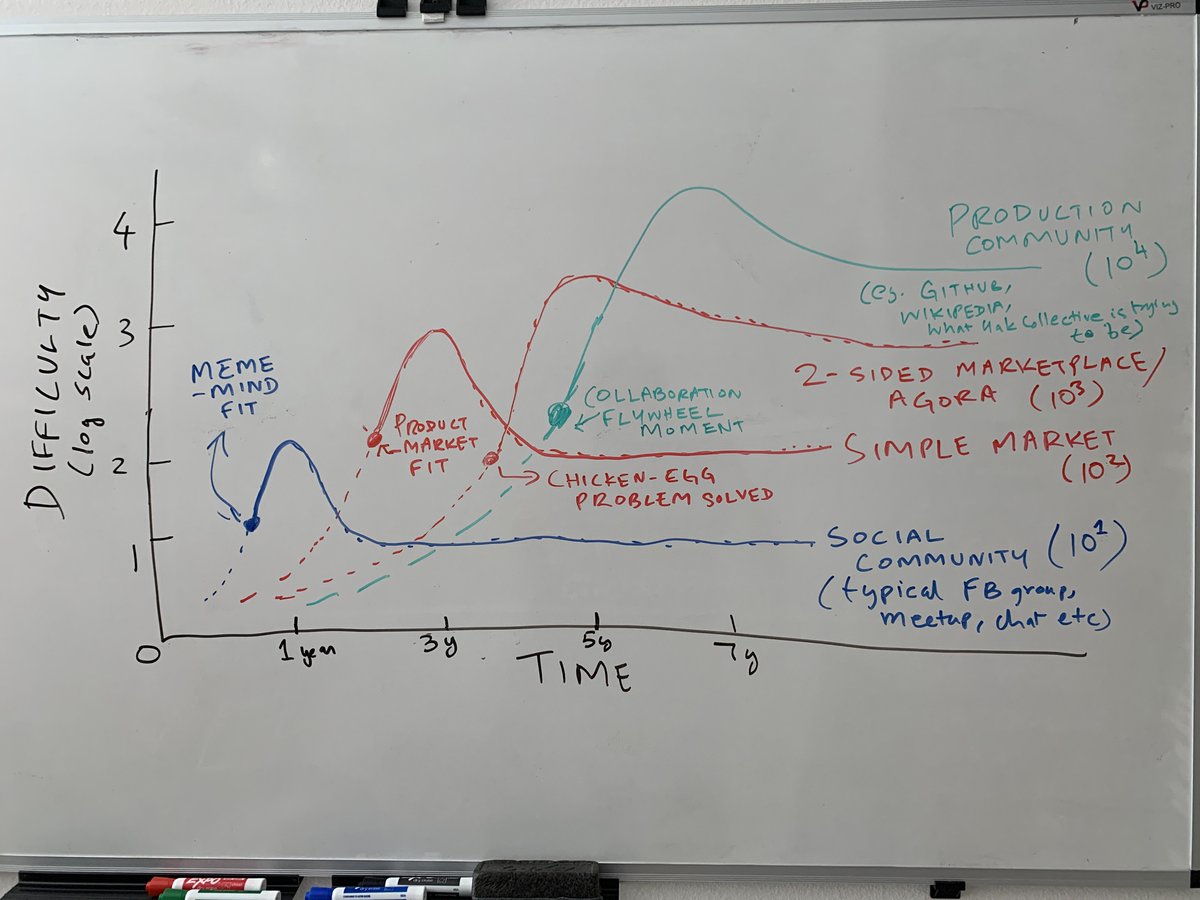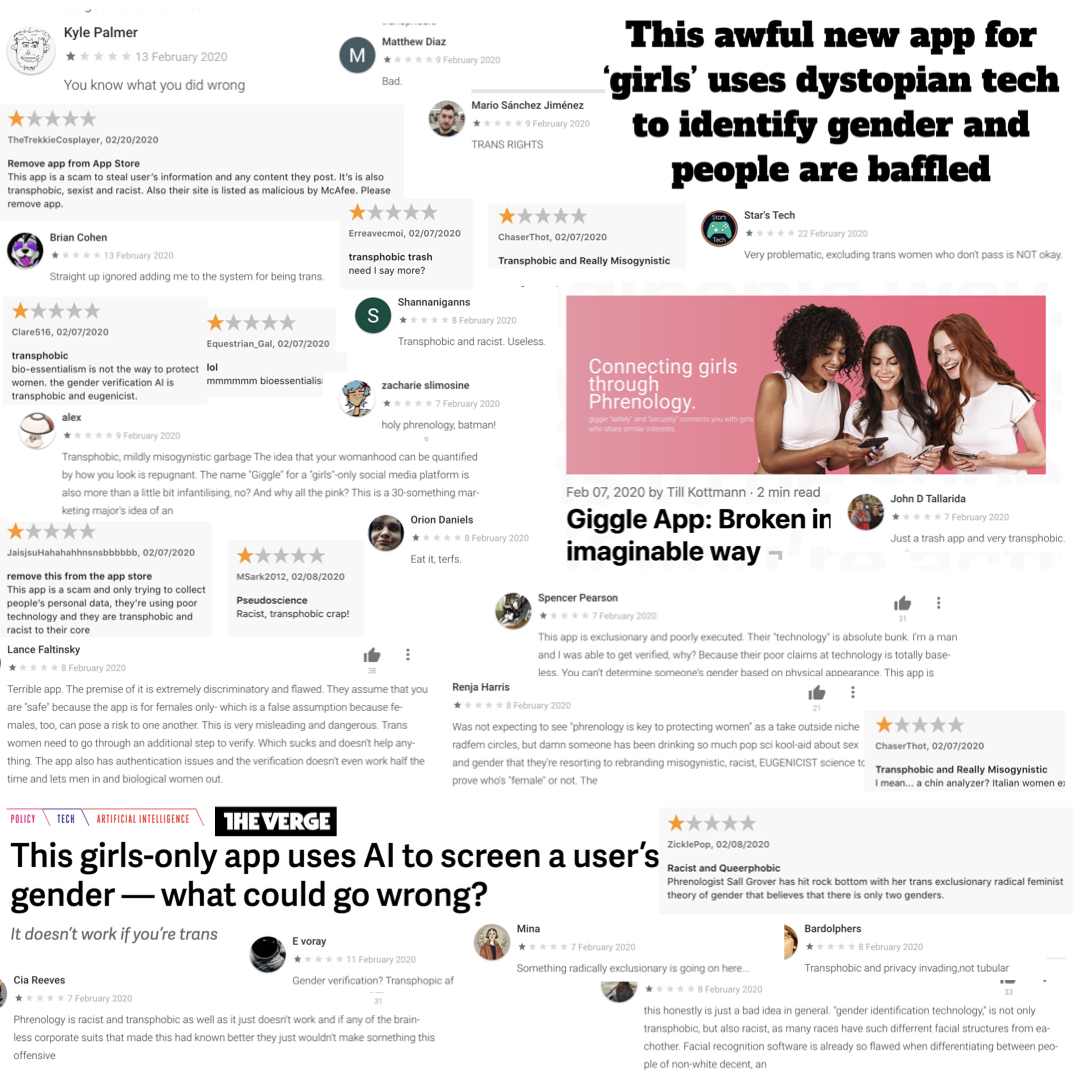social media use really calls for something closer to a driver's license than terms of service... most apparent bad behavior here is more incompetence than malice, like not knowing how to change lanes or take turns at a 4-way stop..
Road test would actually expose you to routine provocations. Like, "make a left turn" = "deal with this concern troll"
each medium would be a vehicle class... twitter is basic cars, FB is semi trucks, whatsapp is motorcycles in the 3rd world without helmets
Having a big following/reach and being a good social media driver are entirely different things.
More from Venkatesh Rao
Both this thread and the outraged response threads are... something.
This is why I never wanted kids. Way too much responsibility for another human’s development. Depending on the child, this might either be the day they discovered who they were or the day that traumatized them into a lifelong fuckup. Either way I don’t want to direct the show.
As far as the can opener goes, it wouldn’t even occur to me to try and turn it into a teachable moment. That sounds vaguely quixotic. I’d just show them how immediately. I think my default is to try and instruct clearly but not demonstrate unless the person is truly disoriented.
I think there’s basically a right answer here: show the kid. If the kid has the aptitude they’ll enjoy the mechanism so much they’ll develop the figure-it-out skill with other devices. If not, it’s a training data point that will build remedial levels of intuition more slowly.
I think perseverance is both misframed and over-rated as a virtue. Misframed as in: everybody has potential for it in some areas and lacks it in others. Aptitude is those areas where perseverance comes easily to you. Meta-skill of knowing where/why you persist is more important.
So, yesterday my daughter (9) was hungry and I was doing a jigsaw puzzle so I said over my shoulder \u201cmake some baked beans.\u201d She said, \u201cHow?\u201d like all kids do when they want YOU to do it, so I said, \u201cOpen a can and put it in pot.\u201d She brought me the can and said \u201cOpen it how?\u201d
— john roderick (@johnroderick) January 2, 2021
This is why I never wanted kids. Way too much responsibility for another human’s development. Depending on the child, this might either be the day they discovered who they were or the day that traumatized them into a lifelong fuckup. Either way I don’t want to direct the show.
As far as the can opener goes, it wouldn’t even occur to me to try and turn it into a teachable moment. That sounds vaguely quixotic. I’d just show them how immediately. I think my default is to try and instruct clearly but not demonstrate unless the person is truly disoriented.
I think there’s basically a right answer here: show the kid. If the kid has the aptitude they’ll enjoy the mechanism so much they’ll develop the figure-it-out skill with other devices. If not, it’s a training data point that will build remedial levels of intuition more slowly.
I think perseverance is both misframed and over-rated as a virtue. Misframed as in: everybody has potential for it in some areas and lacks it in others. Aptitude is those areas where perseverance comes easily to you. Meta-skill of knowing where/why you persist is more important.
I’m guessing these responses really reflect people’s weighted averages (age*current average effort fraction) though I kept it simple and asked for just averages.
I suspect a healthy weighted average should be ~ (age-20)/2. So a 30 year old should be at 5, a 40 year old at 10, a 50 year old at 15 etc.
Standard deviation should be ~average/3 maybe, so distribution spreads as you age and accumulate projects and get better at them.
Other things being equal, people get good at starting in their 20s, at follow through in 30s, at finishing in 40s.
No point learning food follow through until you’ve found a few good starts to bet on. No point getting good at finishing until a few projects have aged gracefully.
I’m in the 7+ range myself. Probably 8-9. Slightly less than healthy for my age.
I suspect most self-judgments on being good starters/follow-through-ers/finishers are really flawed because of the non-ergodicity of project management skill learning. You can’t learn good practices for the 3 phases in an arbitrary order. On,y one order actually works.
Poll: where is the temporal center of gravity of all your live projects based on average age of start-dates?
— Venkatesh Rao (@vgr) January 17, 2021
I suspect a healthy weighted average should be ~ (age-20)/2. So a 30 year old should be at 5, a 40 year old at 10, a 50 year old at 15 etc.
Standard deviation should be ~average/3 maybe, so distribution spreads as you age and accumulate projects and get better at them.
Other things being equal, people get good at starting in their 20s, at follow through in 30s, at finishing in 40s.
No point learning food follow through until you’ve found a few good starts to bet on. No point getting good at finishing until a few projects have aged gracefully.
I’m in the 7+ range myself. Probably 8-9. Slightly less than healthy for my age.
I suspect most self-judgments on being good starters/follow-through-ers/finishers are really flawed because of the non-ergodicity of project management skill learning. You can’t learn good practices for the 3 phases in an arbitrary order. On,y one order actually works.
More from Social media
✨📱 iOS 12.1 📱✨
🗓 Release date: October 30, 2018
📝 New Emojis: 158
https://t.co/bx8XjhiCiB

New in iOS 12.1: 🥰 Smiling Face With 3 Hearts https://t.co/6eajdvueip

New in iOS 12.1: 🥵 Hot Face https://t.co/jhTv1elltB

New in iOS 12.1: 🥶 Cold Face https://t.co/EIjyl6yZrF

New in iOS 12.1: 🥳 Partying Face https://t.co/p8FDNEQ3LJ

🗓 Release date: October 30, 2018
📝 New Emojis: 158
https://t.co/bx8XjhiCiB

New in iOS 12.1: 🥰 Smiling Face With 3 Hearts https://t.co/6eajdvueip

New in iOS 12.1: 🥵 Hot Face https://t.co/jhTv1elltB

New in iOS 12.1: 🥶 Cold Face https://t.co/EIjyl6yZrF

New in iOS 12.1: 🥳 Partying Face https://t.co/p8FDNEQ3LJ

Is WhatsApp already the Super App of India?
Thread 🧵

Below are a few insights I gathered while researching on how Gen-X use WhatsApp as a part of @10kdesigners Cohort!
Okay, let's go!
1/x
Gen-X? Who are they?
Gen-X (short for Generation X) are basically people with birth years around 1960–1980. That’s basically our (millennials’) parents!
2/x
Check out this detailed case study by @zainab_delawala
📮 Communication/Community
This is the primary feature of WhatsApp.
This feature is the entry point for most of the Gen-X, they come to WhatsApp to communicate and engage with small
- WhatsApp group is one of the most used features by Gen-X. Most of the message more on groups than on private chats.
- Forward messages received mostly are written in vernacular languages. They are all well scripted.
4/x

Thread 🧵

Below are a few insights I gathered while researching on how Gen-X use WhatsApp as a part of @10kdesigners Cohort!
Okay, let's go!
1/x
Gen-X? Who are they?
Gen-X (short for Generation X) are basically people with birth years around 1960–1980. That’s basically our (millennials’) parents!
2/x
Check out this detailed case study by @zainab_delawala
📮 Communication/Community
This is the primary feature of WhatsApp.
This feature is the entry point for most of the Gen-X, they come to WhatsApp to communicate and engage with small
Can a movie (96') change how people use an app (Whatsapp)?
— Rajesh Raghavan (@rajeshraghavan_) October 1, 2020
YES. It can.
Let's see how\U0001f440 pic.twitter.com/BV0scQ2KEc
- WhatsApp group is one of the most used features by Gen-X. Most of the message more on groups than on private chats.
- Forward messages received mostly are written in vernacular languages. They are all well scripted.
4/x

THREAD ALT-COMM 🔄
I suggest @manyver_se as TW + FB replacement! It has no server, hence no shutdown! Everything reside on your + friends phone/or PC. You do posts as in TW/FB or private DM.
Generate an ID. Then share invite-codes with friends. See> https://t.co/2OMw7e0bUB ++>
Once you installed the app you can start post threads as "public". For the moment they will be stored on your device. Once you have contacts, they will share that. Is like offline blogging! ++>>
The huge advantage; no server can shutdown your communication! Friends share your posts, so it's resilient if not always online. Is an "off-grid" optimal solution. Is a bit tedious to share "invite-codes" but it's worth. Check>
The most obvious way to CONNECT, is to invite each friend with his special [DHL] generated code. https://t.co/ayurByEtmV Can be shared via mail, or any other means. Use a secure mail like @TutanotaTeam or @ProtonMail ++>>
If some group leader wants, he can do a pub-server where only contacts reside. You must get here an invite-code to to access that server. On digital ocean we can employ one:
I suggest @manyver_se as TW + FB replacement! It has no server, hence no shutdown! Everything reside on your + friends phone/or PC. You do posts as in TW/FB or private DM.
Generate an ID. Then share invite-codes with friends. See> https://t.co/2OMw7e0bUB ++>
Once you installed the app you can start post threads as "public". For the moment they will be stored on your device. Once you have contacts, they will share that. Is like offline blogging! ++>>
The huge advantage; no server can shutdown your communication! Friends share your posts, so it's resilient if not always online. Is an "off-grid" optimal solution. Is a bit tedious to share "invite-codes" but it's worth. Check>
The most obvious way to CONNECT, is to invite each friend with his special [DHL] generated code. https://t.co/ayurByEtmV Can be shared via mail, or any other means. Use a secure mail like @TutanotaTeam or @ProtonMail ++>>
If some group leader wants, he can do a pub-server where only contacts reside. You must get here an invite-code to to access that server. On digital ocean we can employ one:
You May Also Like
Joshua Hawley, Missouri's Junior Senator, is an autocrat in waiting.
His arrogance and ambition prohibit any allegiance to morality or character.
Thus far, his plan to seize the presidency has fallen into place.
An explanation in photographs.
🧵
Joshua grew up in the next town over from mine, in Lexington, Missouri. A a teenager he wrote a column for the local paper, where he perfected his political condescension.
2/

By the time he reached high-school, however, he attended an elite private high-school 60 miles away in Kansas City.
This is a piece of his history he works to erase as he builds up his counterfeit image as a rural farm boy from a small town who grew up farming.
3/

After graduating from Rockhurst High School, he attended Stanford University where he wrote for the Stanford Review--a libertarian publication founded by Peter Thiel..
4/
(Full Link: https://t.co/zixs1HazLk)

Hawley's writing during his early 20s reveals that he wished for the curriculum at Stanford and other "liberal institutions" to change and to incorporate more conservative moral values.
This led him to create the "Freedom Forum."
5/

His arrogance and ambition prohibit any allegiance to morality or character.
Thus far, his plan to seize the presidency has fallen into place.
An explanation in photographs.
🧵
Joshua grew up in the next town over from mine, in Lexington, Missouri. A a teenager he wrote a column for the local paper, where he perfected his political condescension.
2/

By the time he reached high-school, however, he attended an elite private high-school 60 miles away in Kansas City.
This is a piece of his history he works to erase as he builds up his counterfeit image as a rural farm boy from a small town who grew up farming.
3/

After graduating from Rockhurst High School, he attended Stanford University where he wrote for the Stanford Review--a libertarian publication founded by Peter Thiel..
4/
(Full Link: https://t.co/zixs1HazLk)

Hawley's writing during his early 20s reveals that he wished for the curriculum at Stanford and other "liberal institutions" to change and to incorporate more conservative moral values.
This led him to create the "Freedom Forum."
5/

The first area to focus on is diversity. This has become a dogma in the tech world, and despite the fact that tech is one of the most meritocratic industries in the world, there are constant efforts to promote diversity at the expense of fairness, merit and competency. Examples:
USC's Interactive Media & Games Division cancels all-star panel that included top-tier game developers who were invited to share their experiences with students. Why? Because there were no women on the
ElectronConf is a conf which chooses presenters based on blind auditions; the identity, gender, and race of the speaker is not known to the selection team. The results of that merit-based approach was an all-male panel. So they cancelled the conference.
Apple's head of diversity (a black woman) got in trouble for promoting a vision of diversity that is at odds with contemporary progressive dogma. (She left the company shortly after this
Also in the name of diversity, there is unabashed discrimination against men (especially white men) in tech, in both hiring policies and in other arenas. One such example is this, a developer workshop that specifically excluded men: https://t.co/N0SkH4hR35

USC's Interactive Media & Games Division cancels all-star panel that included top-tier game developers who were invited to share their experiences with students. Why? Because there were no women on the
ElectronConf is a conf which chooses presenters based on blind auditions; the identity, gender, and race of the speaker is not known to the selection team. The results of that merit-based approach was an all-male panel. So they cancelled the conference.
Apple's head of diversity (a black woman) got in trouble for promoting a vision of diversity that is at odds with contemporary progressive dogma. (She left the company shortly after this
Also in the name of diversity, there is unabashed discrimination against men (especially white men) in tech, in both hiring policies and in other arenas. One such example is this, a developer workshop that specifically excluded men: https://t.co/N0SkH4hR35





















